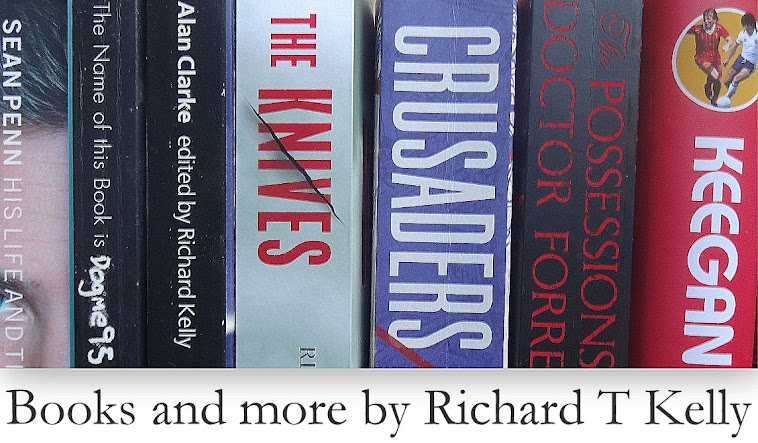 Following on from my lament of a few nights ago about having failed to squeeze an entry on Tourneur's Build My Gallows High into Ten Bad Dates, I've been reminded of a commensurate failure to build a spot in the book for Made In Heaven, one of the movies I really love from the mid-1980s: an affection possibly enhanced by its unavailability on DVD, which left me clinging to vague, fond memories - until, that is, I found some lovely clips on YouTube, such as this trailer...
Following on from my lament of a few nights ago about having failed to squeeze an entry on Tourneur's Build My Gallows High into Ten Bad Dates, I've been reminded of a commensurate failure to build a spot in the book for Made In Heaven, one of the movies I really love from the mid-1980s: an affection possibly enhanced by its unavailability on DVD, which left me clinging to vague, fond memories - until, that is, I found some lovely clips on YouTube, such as this trailer...At the final reckoning Alan Rudolph's career will probably come to be seen as one founded on the cultiest of cult movies (obviously, with Dorothy Parker and Gordon Liddy among his diverse interests, and Keith Carradine and Kris Kristofferson his favoured leading men.) And bittersweet romance has always been one of Rudolph's strongest suits. So Choose Me (1984) may end up getting counted as his masterpiece. Whereas Made in Heaven is one of those movies that most critics considered a would-be-commercial misfire, and the release version was chopped about without Rudolph's consent. But it's definitely the picture of his that I'd take to my Crusoe island.
It's a celestial Love Story that moves from funny/rueful to unashamedly cute/winsome - and then abruptly becomes a Loss Story, with terribly wrenching effect. The excellence of the narrative and its structure is the power of its metaphor.
Lovelorn Tim Hutton dies before his time saving some kids from drowning and goes to an oddball but charming Heaven, where God is Debra Winger in drag (we might indeed all find this to be the case one day...) In Heaven Hutton meets and falls in love with Kelly McGillis, and she with him. Natural justice, the viewer might say. But McGillis was 'made in heaven' and is there only to be gone from there, en route to earth: 'I'm going to be somebody's baby.' Hutton appeals to God/Winger, and is told that's his hard luck: such is life, and death. (You can watch this bit actually.)
But, the rules have one loophole - Hutton can be sent back after McGillis, reborn as a babe himself. The catch is that he won't know where in the world he's going, or anything of why he willed this to be: he'll just be an average Schmo like we all are, stumbling around in the dark. If he can find (or rather, run into) McGillis within 30 years, their fine feelings for one another will be restored like magic - 'love at first sight', you might say. If not, then love will never find either of them: the rest of their lives will be doomed to sadness, and unfulfillable ache.
Now then - did you spot the metaphor? The sense in which this obvious whimsy actually throws a sharply slanting, possibly painful light onto what is a crushingly familiar romantic preoccupation to a great many human beings? That's the wonder of this lovely movie. And YouTube preservation aside I hope it's reincarnated in a proper home format one day.
This is the ending, and if it seems especially to make no sense I believe that's because it was one of the passages most aggressively recut against Rudolph's wishes so as to sweeten an otherwise downbeat end. Still quite gorgeous, though. Contains for me the most fabulous focus-pull-plus-slight-pan in any movie. The score is Mark Isham and the final song is Neil Young's 'We Never Danced', again laid on thick as they did in the 1980s, but such is the way to High Emotional Content.

No comments:
Post a Comment